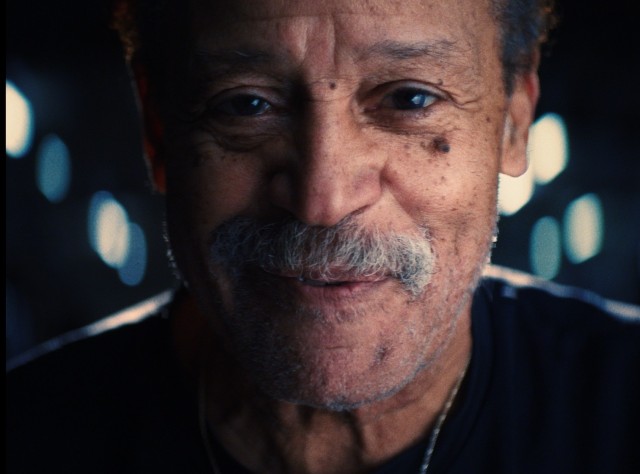Can you become famous for something you didn’t do? It’s the intriguing question that drives Ben Proudfoot’s New York Times Op-Doc The Lost Astronaut, which profiles U.S. Air Force test pilot Ed Dwight—the first Black American to serve in the program from which NASA selected its astronauts. But, as history tells us, Dwight was never chosen to join NASA, and so he has been relegated to a footnote: on the precipice of Jackie Robinson-esque significance, but never quite reaching that iconic status.
I think it’s easy to imagine the story we all wish this was: an inspiring tale of a smart and courageous man breaking the color barrier, launching into space, and becoming a hero for millions (you can almost picture the poster of the Disney movie adaptation). But, America is America after all, and for every small percentage of Black men and women who have managed to become iconic symbols of progress, there are many more who have been sidelined. While The Lost Astronaut clearly touches upon systemic racism in American institutions, the film is less about the structures of ingrained prejudice in this country (an important topic to be sure) and more about the man himself. Dwight is a genial and well-spoken documentary protagonist, and his journey from boy with big dreams to a man pulling 14Gs in an astronaut training centrifuge is compelling.

The extreme close-up & 4×3 framing of the talking head interviews give the film a distinct look
But, his “after story” is perhaps more interesting. After being passed over by NASA, he eventually transitioned into an additional career as a prolific sculptor, building memorials and creating public art honoring African American history. The irony of this is not lost on me: the man who nearly became famous enough to have monuments crafted in his honor is literally building them for other Black heroes. There is a somber poetry in the symbolism: a discriminated Black man, once again relegated to the sidelines, finds ways to still inspire and venerate others. While he may be out of the spotlight, he’s shining it on many other important men and women of color.
Utilizing a very similar editorial and shooting style as his 2021 Academy Award nominated short, A Concerto is a Conversation, The Lost Astronaut is just an objectively well-crafted entry in the short profile doc sub-genre. I love the extreme close-up and 4×3 framing of the primary talking head interview (complete with lovely film grain and anamorphic bokeh). Also, like Concerto, I found the editing quite impressive, especially the way it kinetically weaves the various archival imagery and photos to create an authentic tapestry of the historical period without ever becoming a didactic Ken Burns snoozefest.
That being said, visual pizazz aside, the primary focus here is giving Ed Dwight a platform to share his story—a story too few people know about. In that sense, it’s an important and heartfelt work of journalism that is executed with stylistic flair: yet another reminder that the key component to a great profile doc is simply having a great person to profile.

 Ivan Kander
Ivan Kander